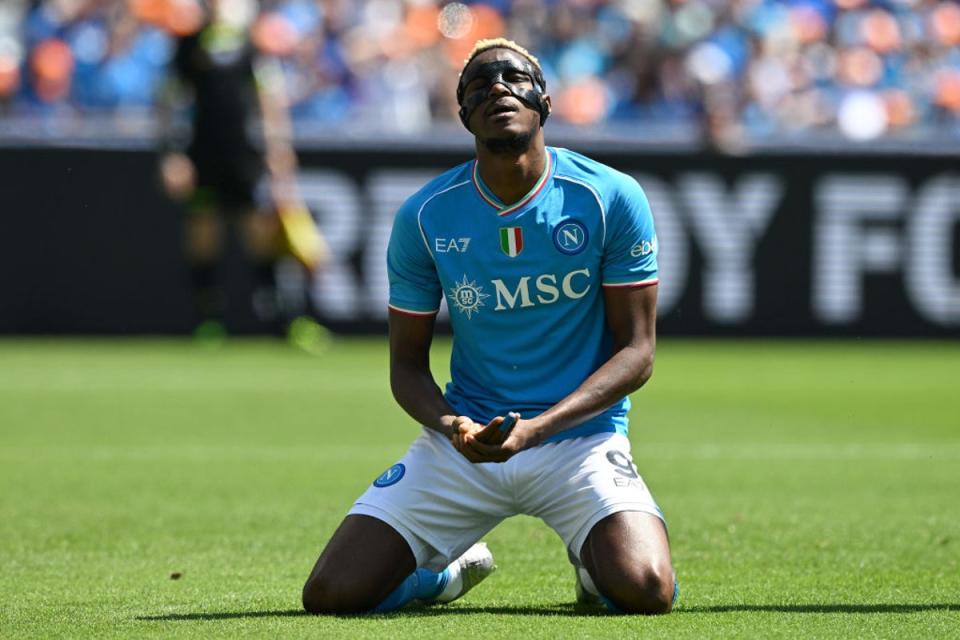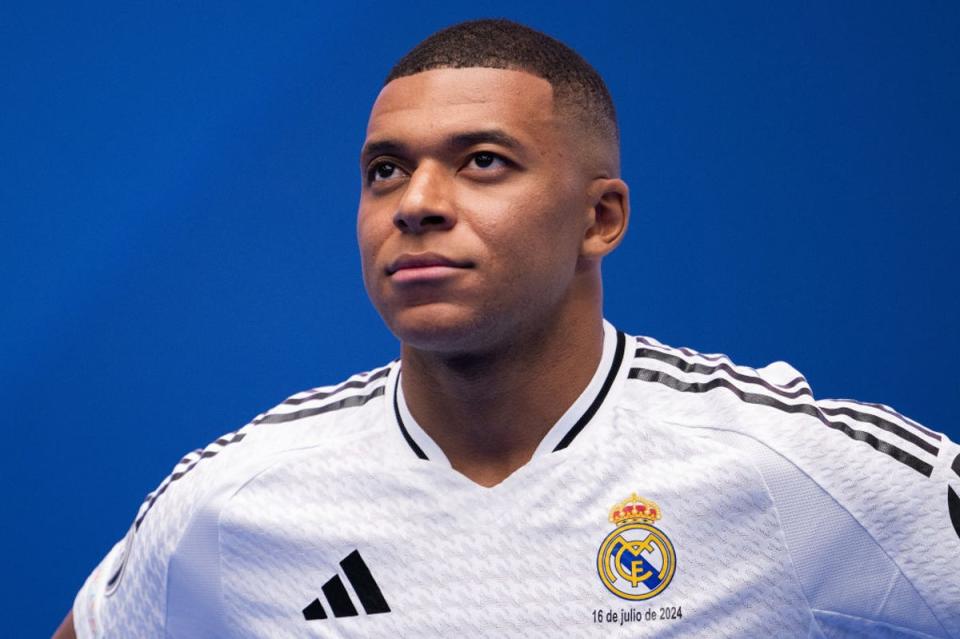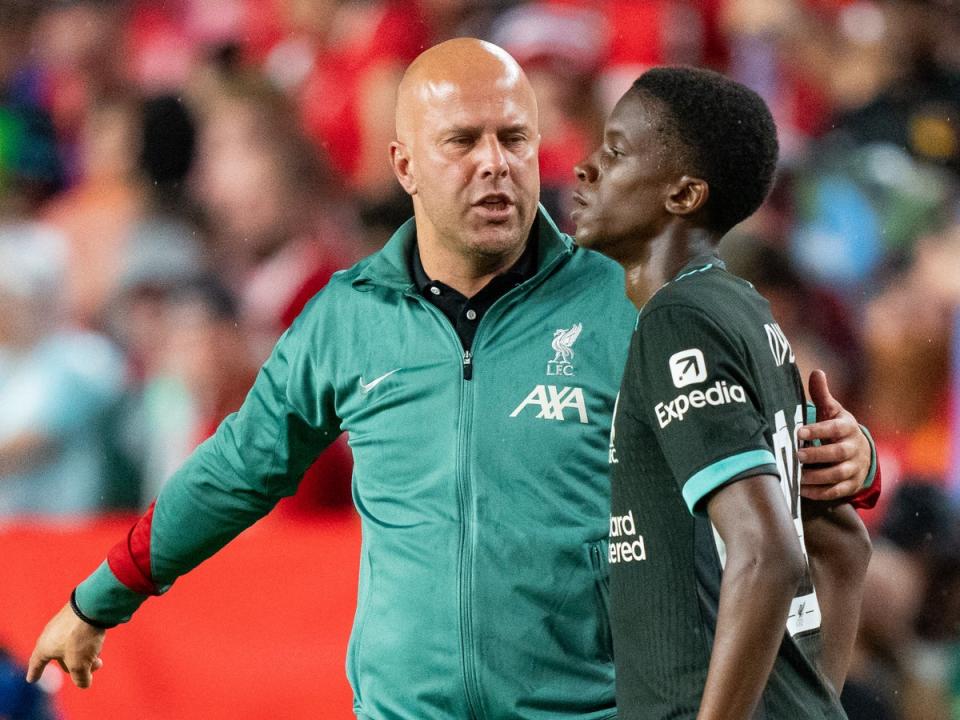Football might be on the verge of a new transfer market era - one where the richest doesn’t take all

Already this summer, a lot of clubs have received calls about Victor Osimhen, but few have been that interested. It’s quite a change from a situation just a year ago, when Napoli owner Aurelio De Laurentiis was setting a starting price of €200m - around £170m - simply to come to the table for the Nigerian.
Now, he’s desperate to get Osimhen off the books, because the Italian club can’t afford the wages that were agreed with the forward as part of a new deal to try and ensure a higher sale price. The problem is that almost no one can go that high. Chelsea have been among the few considering it, although that is only because they themselves have the potential opening from the high wages of Romelu Lukaku, who Napoli’s Antonio Conte wants.
If the deal happens, it would really be a compromise out of necessities, rather than any display of ambition.

This window hasn’t been about that so far. If anything, it’s been a window of austerity, and the wonder in the game is if it might represent the start of a wider era. Might the bubble be finally shrinking? Is football about to enter, in the words of one club chief executive, “an austerity era”?
That is of course a relative term in a sport that remains flooded with state and billionaire money, where wages are so high, where Real Madrid have just agreed to pay Kylian Mbappe half a million a week gross and where the Premier League has still spent almost a billion before sales.
All of that nevertheless represents an unexpected plateauing of a trend that had previously been expected to accelerate, with that recent flatlining coming from some necessary financial pragmatism. Madrid were only able to pay Mbappe so much after half a decade of younger signings, while the Premier League is tracking to be way down on last year’s gross spend of almost £2bn.
The commonly repeated phrases from chief executives, sporting directors and agents has been that “there is very little money around”, “low liquidity” and, ultimately, “it's very quiet”.
There certainly hasn’t been any real blockbuster deal, outside Mbappe, which was a long-mooted Bosman anyway. As it stands, there doesn’t look like there’s going to be one, either. There's no Harry Kane-style saga in the way there was last season.

Arsenal's interest in Alexander Isak might have developed into that, but the market determined otherwise. It didn't escalate to the degree that the London club would have been willing to pay the £200m that Newcastle United might have considered. The transfer baseline has gone back down.
Not even the Saudi Pro League can spend so much, since there are now only limited foreign player spaces available, and they want to go younger.
That general impulse within football means the urge to sign hasn’t gone away, of course. Clubs are still attempting to do deals. Just like Napoli and Chelsea, though, many need to make compromises to get players in. When one relatively big club came close to a deal for a position they needed, they hastily attempted to alter the contract from three years to four because they couldn’t quite afford to spread the payment over the shorter period. Most transfer fees are being spread over the same timescale. There has barely been a deal across Europe yet that has been paid up front or simply over the first year of the deal. Even the spending of Manchester United and Chelsea is offset by the corresponding modern trend of high fees for younger players, but lower wages.
Others are just being more calculated, and picky. Much has been made about how Liverpool haven’t spent anything yet. It is why some in the game believe the market could finally quicken in the last few weeks of the window, as necessity overtakes restraint.

Aston Villa are so far among the few to go big, because of the sudden influx of Champions League money, and need to have quality at that level.
That illustrates how some of this is circumstantial, but a lot of it is down to a crunch that has been a long time coming. In England, the relative lack of expenditure is a direct consequence of clubs spending so much for so long. Wages have been so high that budgets have been pushed right up to the limits of the Profit and Sustainability Rules.
For all the criticism that the regulations have generated the root rationale shouldn’t be forgotten: It is about ensuring clubs do not spend beyond their means, or what they can self-generate.
Many clubs outside England are suddenly finding they can’t generate anything near what is required to be competitive in the market.
Wider socioeconomic forces are at work there. Football certainly isn’t immune from such effects. Commercial and broadcasting income has started to decline in a lot of countries, with Ligue 1’s difficulty in securing a media contract serving as the canary in the coal mine. The constant escalation in wages couldn’t be widely sustained. The Premier League was able to spend much more than anyone else, so naturally attracted far bigger broadcasting contracts than everyone else, in one of football's classic “virtuous cycles”.
The Bundesliga and Serie A have admittedly seen recent upturns but nowhere to the Premier League’s level. That’s the other self-perpetuating aspect of economic downturns, too. They generally see “flights to quality”, in the words of another senior football executive, since people save their money for what they know is good.
And this is where a potential age of austerity has deeper consequences for the wider game.

In general, it’s obviously true that football needs to be weaned off its constant will to spend. Transfers appear to be the primary solution to literally any problem. That isn’t always for the best, as scores of young players coming through have repeatedly proved. An inability to spend also forces managers to innovate, which returns the game to pure coaching and can often bring the most interesting tactical advances.
There is a great example this very summer. One reason Spain were so good at Euro 2024 was because their much earlier economic downturn stopped clubs spending, particularly the big two. That ensured more Spanish talent got more minutes in LaLiga. This is why the national team was so diverse in terms of club representation. That has not just brought the Henri Delaunay trophy itself but also brought a new freshness and vitality to a league that had been going stale.
It also has another effect. Everyone now wants Athletic Club’s Nico Williams. Real Sociedad may yet lose Mikel Merino and Martin Zubimendi. Robin Le Normand has already gone to Atletico Madrid, one of the Super League founders. That strand of super clubs still have considerable power. Austerity tends to most serve those already financially powerful. It is only going to be the same in a free market like football.
This summer, however, may mark the start of an era where that market isn’t as free-spending as it used to be.

